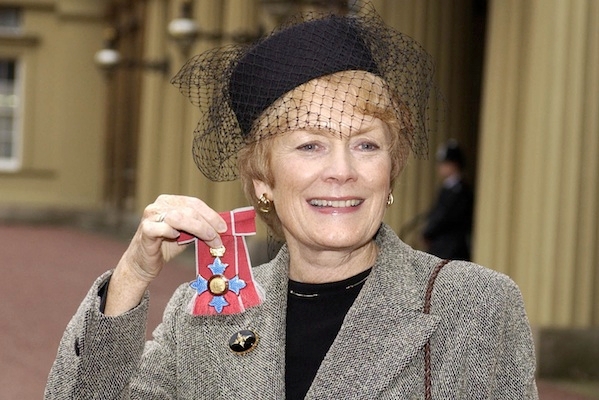You could say that Sue MacGregor has done as much for women on radio as Margaret Thatcher did for women at Westminster. You might, though, want to add that MacGregor survived for 18 years as the only woman presenter on Today, Radio 4’s chief news and current affairs programme, without finding it necessary to deepen her voice to make it more masculine or worrying about what she should wear. She soon established herself as being as essential to the programme’s character and stature as her colleagues, the late Brian Redhead, Peter Hobday and John Humphrys.
MacGregor has always done things her way — by adding a softer, gentler, yet not more pliable, touch to her interviewing technique. I don’t remember her ever screeching to make herself heard above the political babble, nor has anyone felt it necessary to put her down with that awfully condescending, ‘But, Sue…’ Her long-running Radio 4 series, The Reunion (and it really is ‘hers’ because no one else could do it as well as she does), never fails to engage and hold on to you, the listener, whether she has gathered round her table of confidences a quintet of girl singers from the 1960s or those involved in the collapse of Barings bank in the 1990s. It has cropped up in this column more often than any other programme precisely because MacGregor and her guests have so often created one of those radio moments, when all you can hear is the silence, as the people round her table take a pause while they try to take in the meaning of what they’ve just heard.
It happened again on Sunday morning as five people caught up in the King’s Cross fire met each other for the first time. With her journalist’s flair, MacGregor began by giving us a quick summary of what had occurred on that dreadful night in November 1987 when 31 people died and 56 were injured (seven severely) and London changed for ever for those who live and work in the capital. Never again would anyone travel on the Underground without fear. We might have grown accustomed once more to the claustrophobia and crowds on the Tube but I doubt whether anyone travels through its dusty, cinder-filled tunnels without remembering what happened that night and how in its aftermath we suddenly understood that no one had thought about what might happen if and perhaps more importantly when a fire took hold. How would we escape?
I’d forgotten, but MacGregor reminded us, that just three years earlier there had been a serious fire at Oxford Circus. No one had been hurt but it was bad enough for a ‘partial’ ban on smoking to be introduced on all Underground carriages and some platforms. MacGregor then handed over to her guests — the managing director of London Underground at the time, an LBC radio reporter, a firefighter, the sister of someone who died in the fire, and Kwasi Afari Minta, who walked into the ticket concourse just as the fireball exploded and suffered terrible burns. He was lucky to survive, but he now says, ‘I can’t see where I can get any positive things out of this catastrophe…’ Originally from Ghana, he once had ‘high hopes’ about his new life in London. But he lost his fight for compensation and now has to survive on income support. ‘I’ve got nothing,’ he said.
Sophie Tarassenko, who was called to identify her brother Ivan on the morning after the fire, recalls how in that phone conversation she was asked whether she knew the name of her brother’s dentist. It slowly dawned on her what that meant. In the end the dental records weren’t necessary. In the mortuary, as she approached the body on the trolley, she thought with relief that, no, this was not her brother, the skin was very dark brown, not at all like Ivan. A terrible mistake must have been made. But then she got closer and soon realised it was indeed a very badly burnt Ivan. Within a few days, London Underground offered her family £200 towards the funeral expenses, but also warned that this would be deducted from any compensation they might later receive. As she said this, you could almost hear the intake of breath of the person sitting next to her, Tony Ridley, who was in charge of London Underground at the time.
MacGregor waited a moment before saying, with just the slightest question in her voice, ‘Tony Ridley?’
An even longer pause.
‘I have nothing I can offer,’ said Ridley. ‘I didn’t burden myself with something that I believed was being handled elsewhere.’
Again, the sighs were palpable.
Lindsay Taylor, the LBC reporter who just happened to be passing with his tape recorder on the night of the fire, described how he came across a man being resuscitated, unsuccessfully, realising it was one of the firefighters who was being treated by his colleagues. But the last word went to Kwasi, who, in spite of his bitterness about what had happened to him, insisted, ‘Vengeance is not mine.’ Then he said, ‘It’s happen innit. It happen.’ Five sharp intakes of breath. Then silence.






Comments